
Thanks to the implementation of the State Strategy for Combating Antibiotic Resistance, Ukraine has reduced its consumption of reserve antibiotics by 2-2.5 times since 2022.
According to the Ministry of Health, in particular, the consumption of broad-spectrum antibiotics ceftriaxone has been reduced by half, and levofloxacin by 2.5 times.
“The reduction in the consumption of reserve antibiotics indicates that doctors prefer other, less potent first-line antibiotics whenever possible. This allows important drugs to be saved for cases where other antibiotics are ineffective,” explains the Ministry of Health.
In addition, the Ministry of Health notes an increase in the consumption of oral forms of antibiotics. In particular, in 2024, only 8% of all antibiotic prescriptions were in the form of injections.
The Ministry of Health emphasizes that, according to WHO data, as of 2023, almost one in six confirmed bacterial infections worldwide are already resistant to standard treatment, and in 2019, nearly 5 million deaths worldwide were linked to antibiotic resistance.
“Antibiotics are critically important medicines. If you take them just in case or not as prescribed, they lose their potency because bacteria easily become resistant to them. Their resistance is our vulnerability. Among the main causes of antibiotic resistance are the excessive use of antibiotics and non-compliance with the course of treatment prescribed by a doctor,” the Ministry of Health notes.
Reserve antibiotics are drugs that are prescribed in extreme cases to treat severe bacterial infections when first-line (“access group”) and second-line (“observation group”) antibiotics have proven ineffective. They are used only when there is an immediate threat to life, in order to avoid losing their effectiveness due to resistance.

The European pharmaceutical association Medicines for Europe, the Ministry of Health, and the Association of Ukrainian Pharmaceutical Manufacturers (AVLU) have signed a memorandum of partnership in the field of critical medicines. The memorandum was signed on the sidelines of the Ukraine Recovery Conference (URC2025) in Rome last week.
According to Adrian Van Den Goevaert, CEO of Medicines for Europe, Ukraine’s participation in the Critical Medicines Alliance and its experience in sharing responses, together with regulatory integration into EU systems based on alignment with EU technical and procedural rules, anti-corruption measures, the creation of an independent medicines agency in Ukraine, and mutual recognition of GMP certificates are becoming key priorities for EU-Ukraine pharmaceutical cooperation.
For his part, Anatoliy Reder, CEO of the pharmaceutical company Interchem (Odessa), noted that the memorandum will enable Ukrainian pharmaceutical companies to participate in the production of active pharmaceutical ingredients (APIs) for EU countries.
“The memorandum shows that Ukraine is highly developed in the field of pharmaceutical production and is ready to participate in supplying critical medicines to EU countries. We already have certain positions from the list of critical medicines and can very quickly ensure the production of the rest. We can produce APIs in the quantities required by the EU,” he said.
According to Reder, the production of APIs and drugs from the critical list will be convenient for both Ukraine and the EU.
“Ukraine has a highly developed and modern production control system. The requirements for the production of medicines in Ukraine are sometimes higher than in European countries, so we can ensure reliable supplies of high-quality products,” he said.
At the same time, Reder noted that in order to launch a project for the production of critical medicines, European manufacturers need support from European official bodies so that they can include Ukrainian production sites in their dossiers as additional sources of APIs.
Medicines for Europe, MEMORANDUM, Ministry of Health, PARTNERSHIP, PHARMACEUTICAL MANUFACTURERS

The Association of Pharmaceutical Manufacturers of Ukraine (APLU) supports the compromise draft government resolution developed by the Ministry of Health to regulate the size of marketing payments in the retail pharmaceutical market at 20% for over-the-counter drugs and 3% for prescription drugs.
This is stated in the text of the relevant declaration available to the Interfax-Ukraine news agency.
APLU members support the proposal to allow marketing expenses in pharmacies for over-the-counter drugs at a level not exceeding 20% of the total sales of each individual licensee (manufacturer, importer, etc.) of such drugs for the previous year, as well as expenses for services related to ensuring the availability of prescription drugs in pharmacies, in an amount not exceeding 3% of the total sales of each individual manufacturer or importer of such drugs for the previous year.
The APLU explains that “this is a compromise solution reached as a result of interdepartmental consultations, and it now best reflects the achievable balance of interests of all market participants involved—manufacturers, importers, and pharmacies.”
According to APLU members, the draft proposed by the Ministry of Health, in particular, establishes clear rules for the functioning of the market in the marketing services segment and creates a predictable and flexible system that minimizes the risks of abuse and “stimulates the development of fair competition based on product quality and service quality, not just marketing budgets.
In addition, APLU members note that the draft is “a stabilizing tool that prevents a payment crisis at all links in the distribution chain, reduces the risks of monopolization of communication channels, and allows jobs to be preserved and the population to have access to quality medicines at fair prices.”
At the same time, APLU participants propose to adopt the draft “as soon as possible as a transitional but fundamental solution that will stabilize the market” and, after the resolution comes into force, to conduct regular monitoring together with all market participants and state authorities to assess its impact and initiate improvements to the tools, if necessary, ensuring public reporting and transparency of information on the structure of marketing costs and their impact on pricing and the preservation of competition.
“We call on all market participants to join this declaration. The reform of the rules should not be achieved by dismantling the pharmacy sector or demonizing marketing, but through the introduction of clear, controllable, and ethical practices,” the APLU emphasizes.
Source: https://ru.interfax.com.ua/news/pharmacy/1080866.html

Private healthcare facilities are ready to work under the Medical Guarantee Program (MGP) and propose to revise approaches to the formation of certain packages for the MGP, which will reduce the cost of medical services and optimize budget expenditures.
This was stated by members of the Association of Private Medical Institutions (APMI) at a press conference at Interfax-Ukraine on Thursday.
Mykola Skavronsky, deputy director general of the Cinevo medical laboratory, noted that the laboratory has not stopped working since the beginning of the war, despite the fact that in 2022 Cinevo lost more than 30 branches in different regions.
“It’s quite a shame to see that recovery programs exist only for state or municipal medicine. This completely ignores the fact that private medicine also suffered from the war. But, unlike the state and municipal ones, all private providers are recovering and continue to work with their own or credit funds, not with budget funds and without assistance,” he said.
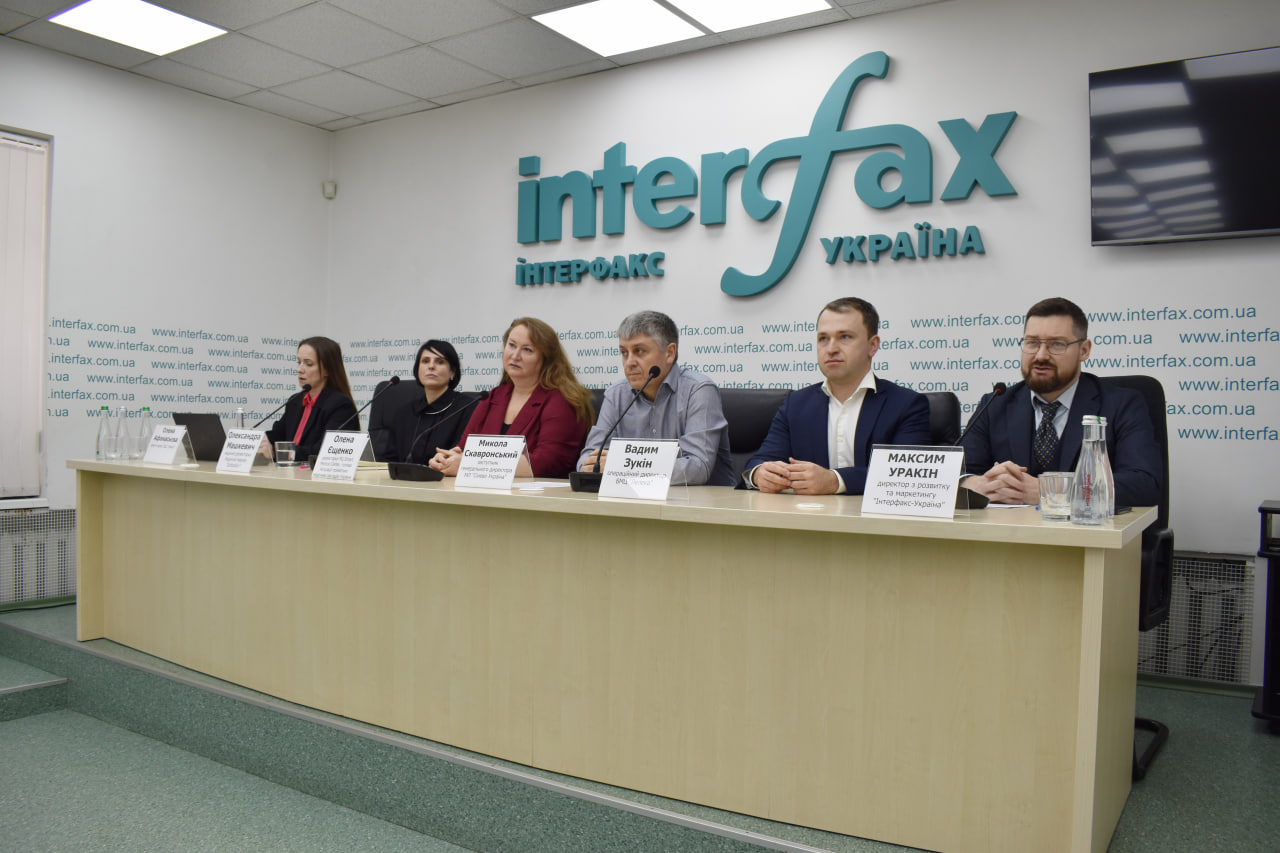
Commenting on the first experience of Cinevo’s cooperation with the NHSU in 2024, Skavronsky noted that the laboratory’s entry into the PMG “became a kind of spotlight that highlighted the situation with the laboratory industry in Ukraine as a whole.”
“I can say that the state does not know and does not understand the real need of doctors and patients for laboratory diagnostics. Now it is believed that laboratory diagnostics are needed as much as they are ordered, not as much as they are needed. Cinevo’s cooperation with the NHSU has revealed the fact that there is simply a huge unrealized demand for laboratory diagnostics in Ukraine, in March last year alone, we performed almost 730 thousand tests for 72 thousand people, and we saw that of these people who came to us for PMG, two-thirds were new people,” he said.
Skavronsky noted that at basic prices, Cinevo performed tests for about UAH 528 million, at prices, the cost of tests was about UAH 200 million, while the NHSU paid UAH 44 million for them.
“We asked the NHSU to create a laboratory package that would be transparent and clear, where it would be clear what tests and, most importantly, which doctors can prescribe them and in what quantity. Because it turned out that there were no restrictions at all, doctors prescribed tests that should not have been prescribed. It is not the laboratory that should decide what to do and what not to do, there should be a system that simply does not allow prescribing something wrong,” he said.
According to Skavronsky, one of the most popular tests funded by the budget in 2024 was vitamin D tests, of which the laboratory performed about 100 thousand.
“I don’t think Ukraine is such a rich country to cover vitamin D tests in such volumes at the expense of taxpayers. But doctors prescribe them. Why doctors prescribe them is a bigger question for doctors and pharmaceutical companies,” he emphasized.
Skavronsky also emphasized that the implementation of the proposals developed by the laboratory allowed “not only not to increase the tariff, but even to reduce it.”
“As a private laboratory, we would be ready to work with tariffs that are 15% lower, but subject to clear criteria. In recent years, we have heard that money follows the patient, but over the past year, especially in the first quarter, we have seen that money does not follow the patient,” he said.
For his part, Vadym Zukin, Chief Operating Officer of the Leleka Multidisciplinary Medical Center, reminded that Leleka is the only medical center in Ukraine that has international JCI accreditation, and the clinic received its latest confirmation at the end of 2024.
“Literally two months before the full-scale invasion began, the Minister of Health and his deputy came to us and we discussed how these standards could be implemented for other market players. But now it seems that the state is sailing its own ship, and we are trying to catch up with the Ministry of Health and convince it of something,” he explained the situation.
Zukin emphasized that “the state should realize that it is more profitable for it to become a purchaser of medical services rather than a provider and not to invest in fixed assets, since private companies already have these funds.”
He also suggested that the NHSU should enter into longer-term contracts for participation in the PMG.
“Currently, certain PMG packages will have three-year contracts, which is better than one year, but it means nothing, because in Europe and the US they think in terms of seven years, 10 years, 15 years,” he said.
Zukin believes that “now the reform has started to move a little bit in the opposite direction from the notion that money follows patients, and I would like to bring it back in the right direction.”
For her part, Oleksandra Mashkevych, medical director of the Dobrobut medical network, noted that the network is a major taxpayer, employing 3,000 people, including 1,300 doctors. At the same time, 131 employees have been mobilized from Dobrobut and the clinic continues to pay their salaries.
“We are recognized by the Ministry of Health as critical infrastructure. In 2024, we invested almost UAH 0.5 billion in our development, most of which was spent on our energy efficiency. I would like to note that investments in energy efficiency in state and municipal institutions are not made at their own expense, but at the expense of the state or donors or sponsors. We do it on our own,” she said.
At the same time, Mashkevych emphasized that Dobrobut’s cooperation with the NHSU is “quite interesting.” In particular, the clinic has been contracted for a package of assisted reproductive technologies, under which 300 patients have completed treatment cycles and almost 45% of women have already confirmed pregnancy status.
“The tariff for this service was too low for us, we worked in the red, realizing that we were lending a hand to the state, in fact, we gave the state the opportunity to use our facilities to provide free medical services. We had long rounds of negotiations with the NHSU, the Ministry of Health, and the Ministry of Finance, and they heard us and increased the tariff. This tariff does not cover all our expenses, but we continue to work with it,” she said.
Commenting on the plans to work with the NHSU, Mashkevich noted that Dobrobut plans to expand its participation in the UHI-2025 and is waiting for the NHSU’s decision on contracting for new packages.
At the same time, Mashkevych called it a positive decision to allow private institutions to use the state unified portal of medical vacancies launched by the Ministry of Health.
The press conference was organized by the Interfax-Ukraine agency and the Association of Private Medical Institutions.
Afanasieva, Bereznitsky, CLINIC, MASHKEVYCH, MEDICINE, Ministry of Health, Skavronsky, URAKIN, Yeshchenko, Гавриченко, Зукін
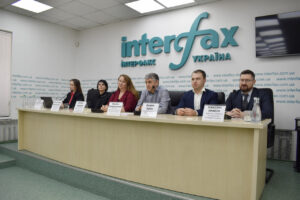
The Ministry of Health continues to impede the entry of private clinics into the medical guarantees program and creates discriminatory conditions for their participation in the single medical space.
This opinion was expressed by members of the Association of Private Medical Institutions (APMI) at a press conference organized jointly with Interfax-Ukraine on Thursday.
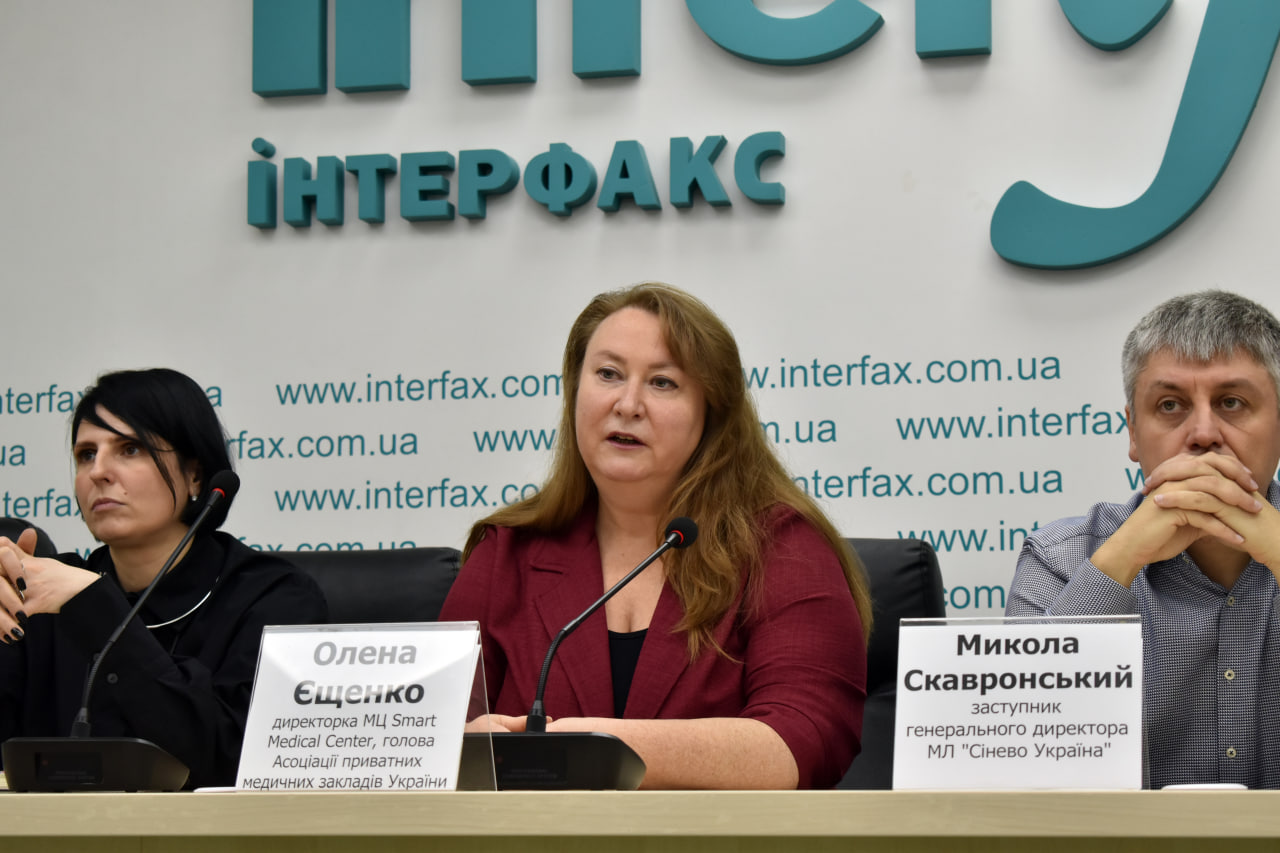
“We have tried many times to reach a dialogue with the relevant ministry, but, unfortunately, we have been ignored in all formats – official, unofficial, absolutely in all. Therefore, we were forced to send an open letter. It is unfortunate that the Ministry of Health demonstrates its intention to continue ignoring us and our problems. This is evidenced, in particular, by the regulatory documents approved after our appeal,” said Olena Yeshchenko, director of Smart Medical Septeg, chairman of the APMZ.
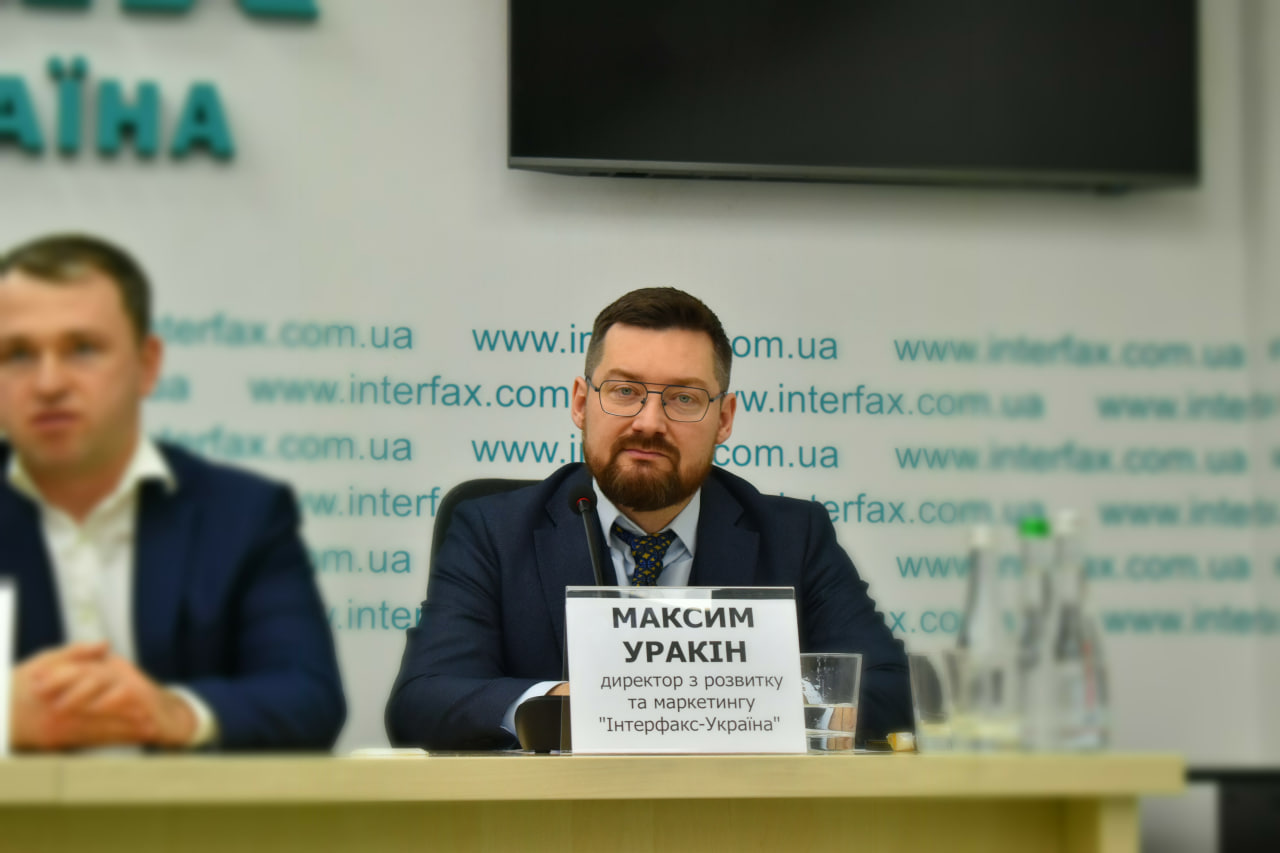
She explained that the regulations put private clinics in a non-competitive position with state or municipal healthcare facilities. “They create artificial obstacles aimed at removing large private providers, healthcare providers from the system, which ultimately leads to unnecessary spending of public funds and their misuse,” she said.
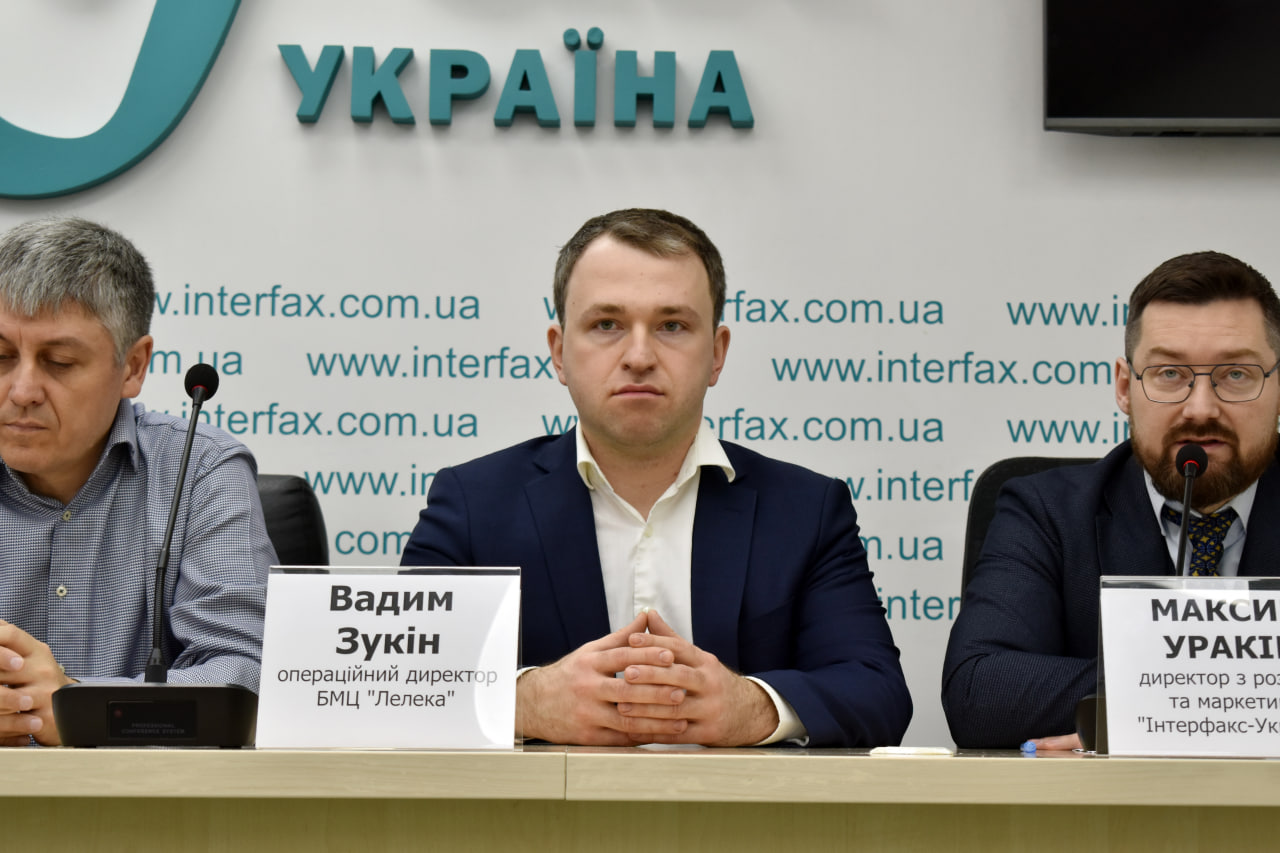
According to Ms. Yeshchenko, these are the requirements of the Primary Healthcare Program 2025, which relate, in particular, to the requirements for laboratory tests, as well as the introduction of reduction coefficients for private clinics when paying for medical services provided under the Primary Healthcare Program, as well as requirements that make it impossible to include private institutions in a capable network, etc.
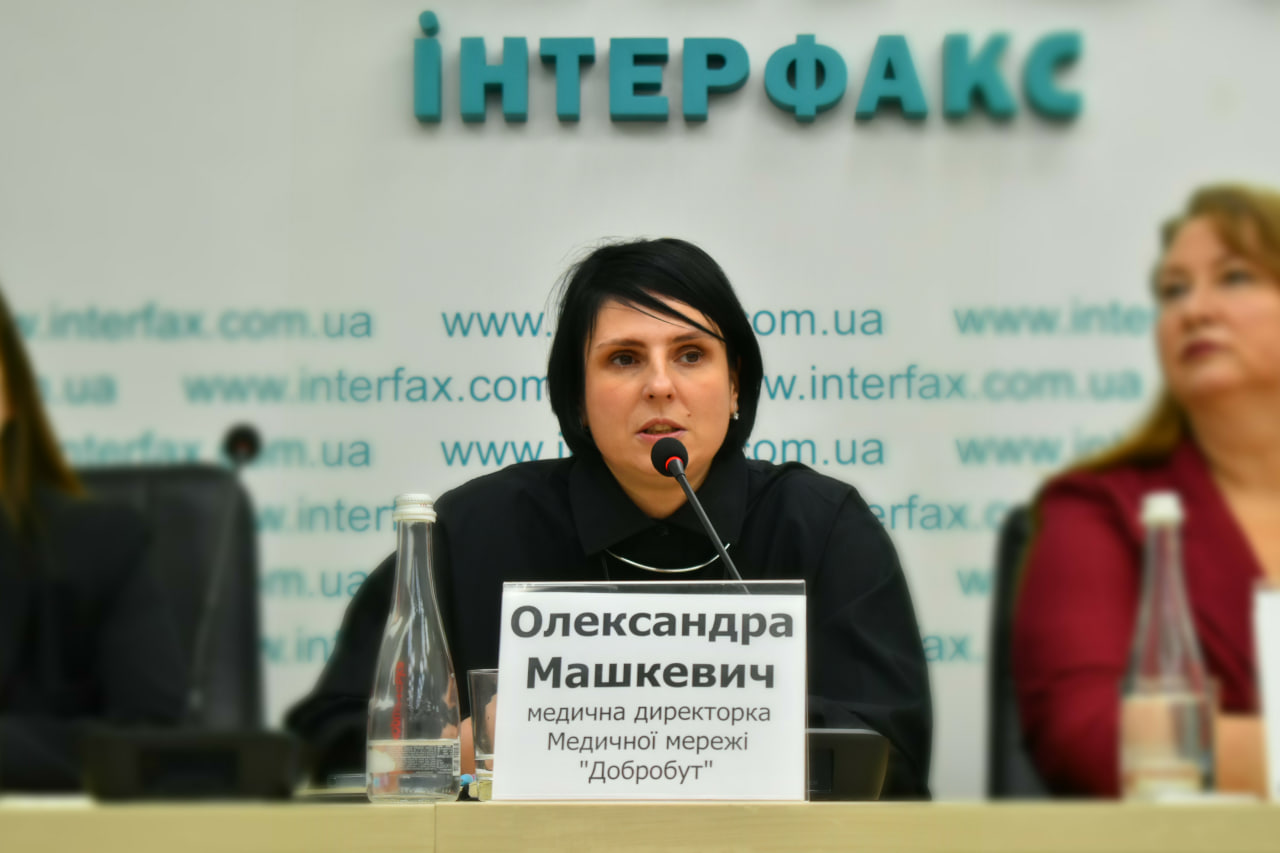
She emphasized that the issue of booking medical staff is becoming especially relevant for private clinics. “We are talking about a number of very serious discriminatory issues, for example, when it comes to booking medical staff. Even after our appeal, the government approved a 100% quota for booking medical staff for state and municipal institutions, but this is not provided for private institutions, although many private clinics continue to operate and provide medical care to the military and the wounded at their own expense,” she said.
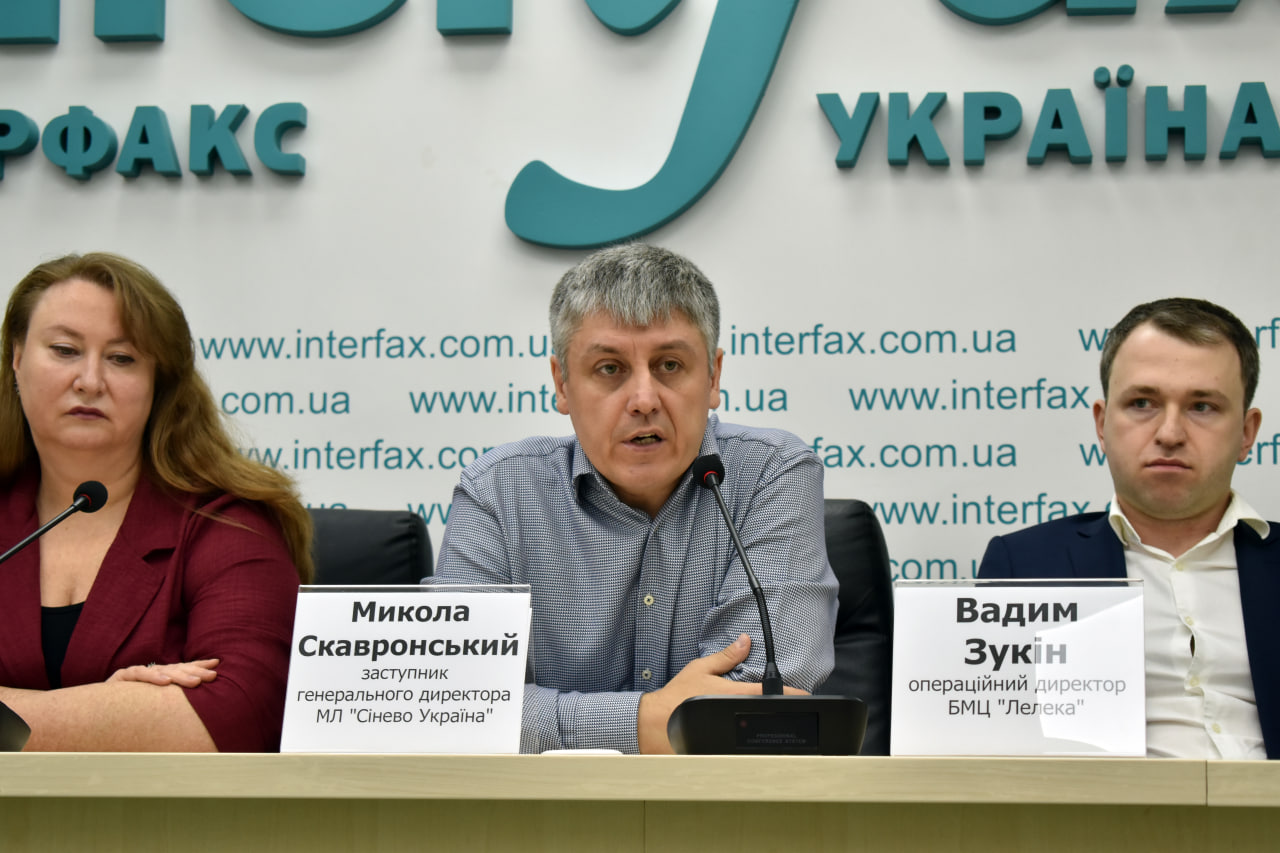
“Thus, in our opinion, a rather corrupt component is being implemented, which contributes to the outflow of medical workers from private medicine to state and municipal institutions,” emphasized Yeshchenko.
According to her, there is currently a problem of communication on this issue between the Ministry of Economy and the Ministry of Health. “In fact, the two ministries are trying to play football with each other,” she said.
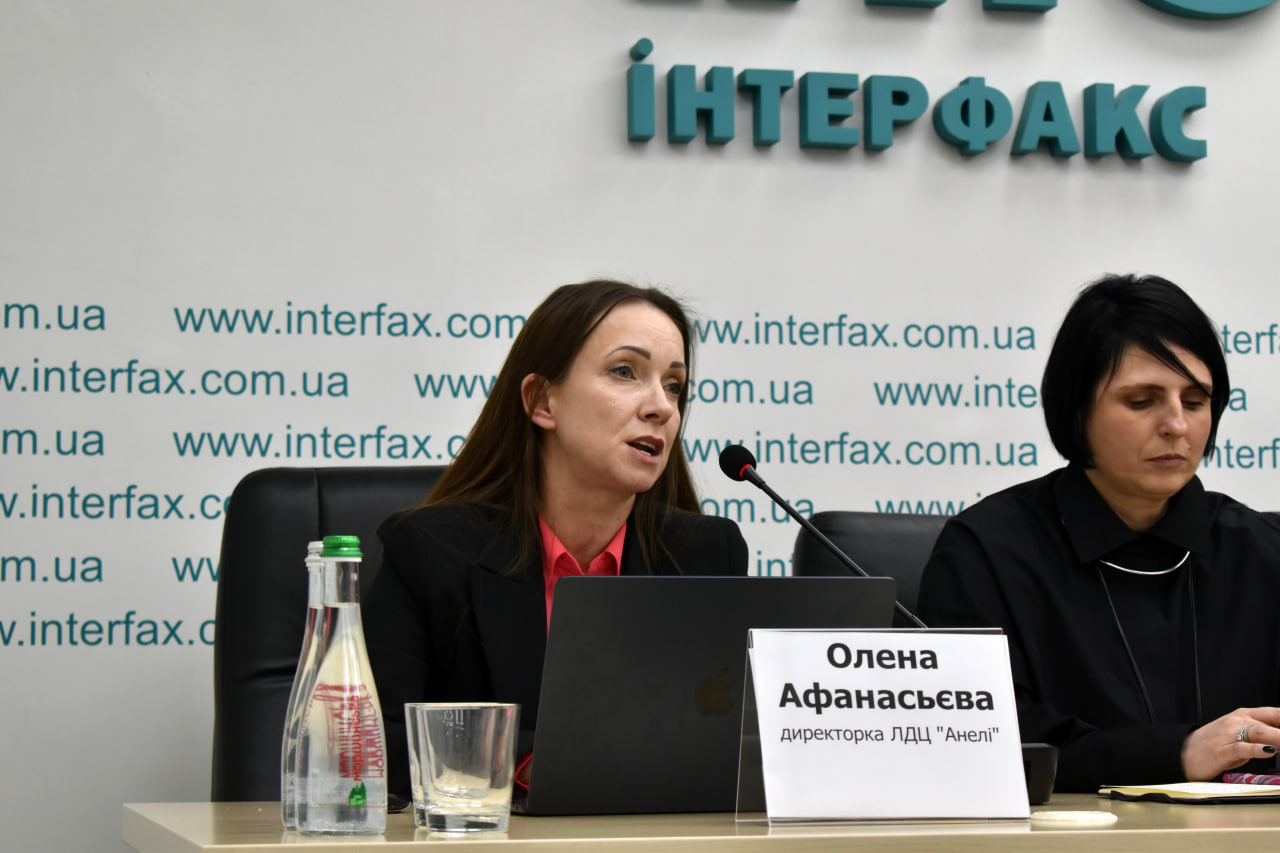
For her part, Oleksandra Mashkevych, medical director of Dobrobut Medical Network, noted that Dobrobut, which is included in the list of critical infrastructure facilities, is also deprived of the possibility of booking.
“Dobrobut Medical Network is a critical infrastructure facility. As far as I know, there are only 11 healthcare facilities classified as critical infrastructure facilities. And I have a question: why we are not included in the resolution on booking 100% of doctors. We will honestly say that our healthcare workers are likely to move to state-owned and municipal facilities, because there is an opportunity to book there,” she said.
As reported, at the end of December last year, the APMH in an open letter to government agencies stated that the Ministry of Health violates the rights of citizens and prevents private institutions from entering the single medical space and the PMG.
Bereznitsky, CLINIC, Havrychenko, MEDICINE, Ministry of Health, Skavronsky, URAKIN, Yeshchenko, Афанасьєва, Зукін, МАШКЕВИЧ

The Ministry of Health of Ukraine and the USAID Healthcare Reform Support Project have launched an all-Ukrainian online sociological survey of patients called “Patient Voice”.
According to the Ministry on its website, the survey will allow to explore the experience of Ukrainian patients with the medical system to assess the perception of changes in the healthcare system.
The Ministry of Health reminds that in March-September 2024, the Voice of Healthcare Workers survey will also be conducted.